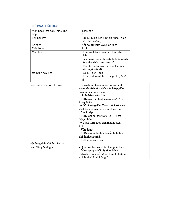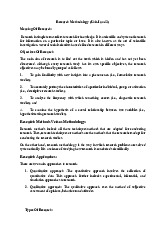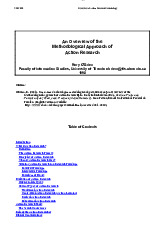

Preview text:
I would like to state my viewpoint about chapter 11 related to teacher
misbehavior (from pages 151 to 160) in "Communication, Affect, &
Learning in the Classroom". At first, misbehaved students are my prior
concern. However, I wonder whether I am the cause of the kids’ defensive
attitudes so chapter 11 is more necessary for my selfassessment. This
writing will concisely highlight my understanding of the mentioned issue,
accompanied by how the findings can be advantageous for my work.
To some extent, students’ misbehavior is an accusation of the ways teachers
inappropriately behave, but the influence may be backward. Therefore, the
reason why this chapter catches my attention is that it pictures how
misbehaved the teachers can be so that I can avoid it. There are three main
types of teacher misbehavior including teacher incompetence, teacher
offensiveness, and teacher indolence, which are direct to students’
misbehavior and teachers’ irresponsibility for their career - their passion or
their used-to-be. The teachers tend to lose their passion for their career due
to the long-term duration of the repeating work, which leads to their
indifference to dedicating to their job and constantly refreshing themselves
in terms of teaching styles as well as updating new knowledge.
Unknowledgeable teachers and ineffective communication hardly ever
help learners reach a sense of excitement and fulfillment in learning. In
addition, regardless of how the teachers communicate with the students,
verbally or non-verbally, careless language use easily creates a bad
impression and demotivates students from getting involved in classroom
activities. Regarding the useful findings, I figure out that professional
development is integral to continuously cultivating myself and increasing
the students’ belief that I am helpful for them to count on. I should
periodically spend time reflecting on my expressions and contribution so
that I can immediately take a chance to lessen my negativity, develop my
strengths and explore my inner potential by participating in new challenges
like taking up new courses. At present, I am in the master’s course with the
aim of sufficiently preparing vital pedagogical knowledge to support my
job. I highly appreciate emotion control and language use. Due to my
extreme overthinking, my consciousness is primarily targeted toward
suitable language use and attitudes in interpersonal communications. I frequently maximize my carefulness to avoid unexpected
misunderstandings. In terms of the heavy workload, workers may find it
hard to liberate themselves from stressful responsibilities. Pressure can be
burdensome but it is genuinely the efficient impulse that forces people to
get far into their promising future. Stress results in a bad mood and negative
attitude, but the teacher is like an actor who can hide his feelings and
fruitfully accomplish his performance. As a teacher, I used to be a learner
so I comprehend the correlation between teachers’ energy and learning
motivation. Each member of the classroom desires a motivated and
constructive learning environment so that the knowledge can be
effortlessly indoctrinated, which depends on teachers’ skillful
management. This is the reason why I keep learning from experienced
teachers to convey lively, exciting, and creative lessons.
Frankly, at the very beginning stage of my teaching path, it is uncertain to
assure my life-long lasting passion for teaching, but I will pursue my
ultimate target which is to educate the young generations to be successful and helpful citizens.



